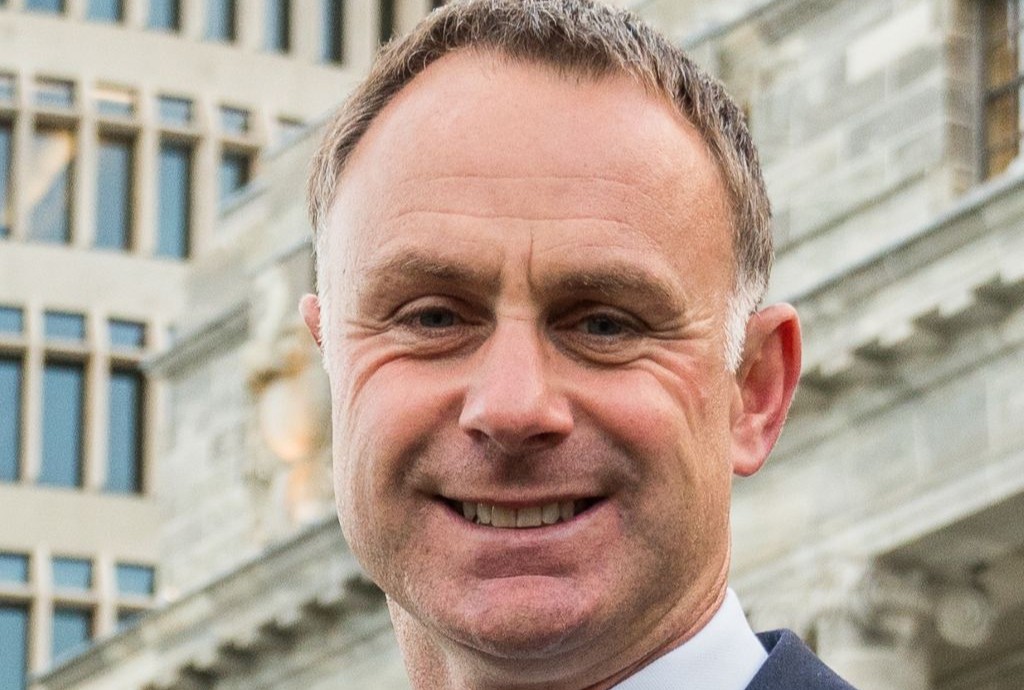Table of Contents
BICOM
BICOM provides accurate, timely and balanced information that is read by officials, experts, journalists and many others.
Gaza Strip: Israel last night presented evidence that Hamas has used the basement of Gaza City’s Rantisi Hospital as a significant base of operations.
- Having taken control of the hospital, IDF troops from the Navy’s elite Shayetet 13 commando unit and the 401st Armoured Brigade discovered a weapons trove in the basement, including suicide-bomb vests, grenades, AK-47 assault rifles, explosive devices, and RPGs.
- In announcing the discovery, IDF Spokesperson Rear Admiral Daniel Hagari said that there was also evidence that the subterranean site had been used to hold some of the hostages.
- “The Hamas terrorists returned from the October 7 attack after slaughtering Israelis and burning babies and women alive and came back to hide out under Rantisi Hospital and other hospitals around the Strip,” he said.
- “This is a war crime, this is a crime against humanity,” he added.
- The news came as troops continue to surround Gaza City’s Shifa Hospital.
- Israel has made repeated efforts to evacuate patients from hospitals in northern Gaza, and says it continues to work with doctors to move patients and hospital staff to adjacent safe routes.
- Officials in Israel and in Gaza have been trying to make arrangements for acute patients to be moved to hospital wards in the southern Gaza Strip.
- Doctors at Shifa are also preparing to transfer 37 premature babies currently in the hospital. Israel has organised incubators that will be delivered to the hospital this morning
- “Our war is against Hamas, not against the people in Gaza. Especially not the sick, the women, or the children,” Hagari said. “Our war is against Hamas who uses them as human shields.”
- Israeli Defence Minister Gallant spoke publicly yesterday, and said that “The IDF is advancing at every location. The Hamas organisation has lost control in Gaza: Terrorists are fleeing south, civilians are looting Hamas bases. They have no confidence in the government.”
- “Our troops are advancing, he added, and “are completing their missions according to plan. Every day we kill more Hamas commanders, [and] tens and sometimes hundreds of terrorists, and the IDF has reached the centre of Gaza City and is operating according to its own needs.”
- Images have circulated on social media appearing to show the IDF’s Golani Brigade inside Hamas’s military police headquarters, having apparently captured it.
- Two more IDF troops were killed in the Gaza Strip yesterday, taking the total to 46 since the start of the ground incursion.
- Israel has also confirmed that Vivian Silver, the renowned 74-year-old peace activist declared missing on October 7th, died in the Hamas attacks.
The north: Following the weekend’s intensified clashes with Hezbollah on the northern border, two IDF soldiers were wounded yesterday by a Hezbollah anti-tank guided missile attack in the Netu’a area.
- The Israel Electric Corporation also confirmed that one of its staff injured on Sunday by a Hezbollah-claimed anti-tank missile has died.
- Yesterday, the IDF carried out a number of strikes against Hezbollah infrastructure, an anti-tank missile cell, launch sites, compounds with weapons depots, and a command centre.
- This morning, air defences downed a “suspicious target” off the coast of Acre.
The West Bank: the IDF operated overnight in the West Bank Tulkarem refugee camp. Weapons were found in searches and the IDF confirmed it had targeted a drone strike at Palestinians throwing explosives at troops.
- The Palestinian Authority health ministry said at least six Palestinians were killed during the operation.
Context: Rantisi Hospital is used primarily as a facility for child patients, and the discoveries give credence to Israel’s long-held view that Hamas uses medical facilities as operations bases and their patients as human shields.
- Under international law, hospitals are offered protective status. However, they can lose that status if a party to the conflict opts to use them for military purposes.
- The US has reaffirmed its wish that fighting not take place in hospitals, President Biden saying yesterday that “I have not been reluctant expressing my concerns with what’s going on. My hope and expectation is that there will be less intrusive action” in hospitals.
- On Sunday, National Security Advisor Jake Sullivan made similar remarks, while recognising the difficulty Israel faces when “Hamas is operating in a way that is outside the bounds of any civilized concept of how you would think about using a hospital, using human shields.”
- The UN today estimated that at least 200,000 northern Gazans had heeded Israel’s repeated warnings to move south over the last ten days.
- In a press briefing yesterday, Israeli Foreign Minister Eli Cohen said that Israel recognised that international pressure to cease its operation in the Gaza Strip would begin increase in the coming weeks.
- Cohen said, “In the talks I’ve held with foreign leaders, they’ve placed emphasis on the humanitarian issue in the Gaza Strip, whereas the proportion of solidarity and shock from the October 7 massacre is decreasing. In political terms, we are seeing that pressure on Israel has begun. That pressure isn’t very high, but it is trending upward… We will continue in any event according to plan.”
- Cohen also revealed that he was working with European states to create a “maritime humanitarian corridor” to the Strip, to aid the transfer of vital equipment and supplies to the population.
- The IDF’s advances are having a material impact on the threat to Israel from Hamas rockets. Data from the week November 5th to 12th showed the lowest number of Israeli rocket alerts (455) in any period since October 7th.
- In total, over 10,000 rockets have been fired on Israel since October 7th, with the IDF assessing that Hamas retains a significant rocket arsenal which it is keeping in reserve for a long war.
- This morning, sirens sounded in Nirim, near the border with the central Gaza Strip.
- Despite some Israeli voices recommending a front-foot approach to a potential war with Hezbollah, the policy remains to contain the conflict on the northern front.
- Hezbollah, too, has hitherto shown little evidence of an inclination to escalate, though its aggression over the weekend indicated a new posture.
- There is a consensus in Israel that the northern border communities that have already been evacuated will not return to their homes unless the Hezbollah threat, and specifically their elite Radwan fighters remain poised on the border, is neutralised.
- The IDF’s objective is therefore to remove that immediate threat and push Hezbollah north, beyond the Litani River.
Looking ahead: Speculation continues regarding a potential deal to free some of the hostages. The most cited contours of an agreement would see Israeli women and children released in groups, alongside Palestinian women and young people held in Israeli prisons.
- A pause to the fighting in Gaza to allow for the safe release of hostages and the transfer of further aid would likely be another component.
- The families of the hostages are planning public demonstrations over the next five days to maintain the pressure on the government to prioritise a deal.
BICOM Background Briefing: Operation Swords of Iron
BICOM published a comprehensive background briefing on Operation Swords of Iron, including background on Hamas, Israeli policy on Gaza, and Israel’s obligations under international law. Read the full briefing here.
PODCAST
Episode 219 | Briefing with Efraim Halevy
In this recording of a live briefing, Richard Pater speaks with former director of the Mossad Efraim Halevy. Halevy presents his assessment of Israel’s operation in the Gaza Strip, the chances of Iran entering the conflict and the response within Israeli society. Halevy joined the Mossad in 1961 and advanced through its ranks. From 1990–1995, he served as an emissary and negotiator on behalf of Prime Minister Rabin and Israel’s ambassador to the EU. From 1998, Halevy served as head of the Mossad during the terms of Prime Ministers Netanyahu, Barak, and Sharon. In 2002 he became the head of the National Security Council.
Fathom Long Read | Lethal Journalism and the Pattern: Why the World Fell for Hamas’ Al Ahli Lie – Read here
‘The ISIS-ization of Hamas is a threat not only to Israel but to everyone’: Interview with IDF Lieutenant Colonel Avichay Adraee – Read here
Opinion | Beyond the Carnage: Credo of a democratic Zionist – Read here
Celebrating Terror – new research indicates a radicalisation of antisemitic discourse about Israel online in the wake of the Hamas terror attacks – Read here
Book Review | Amos Oz: Writer, Activist, Icon – Read here









